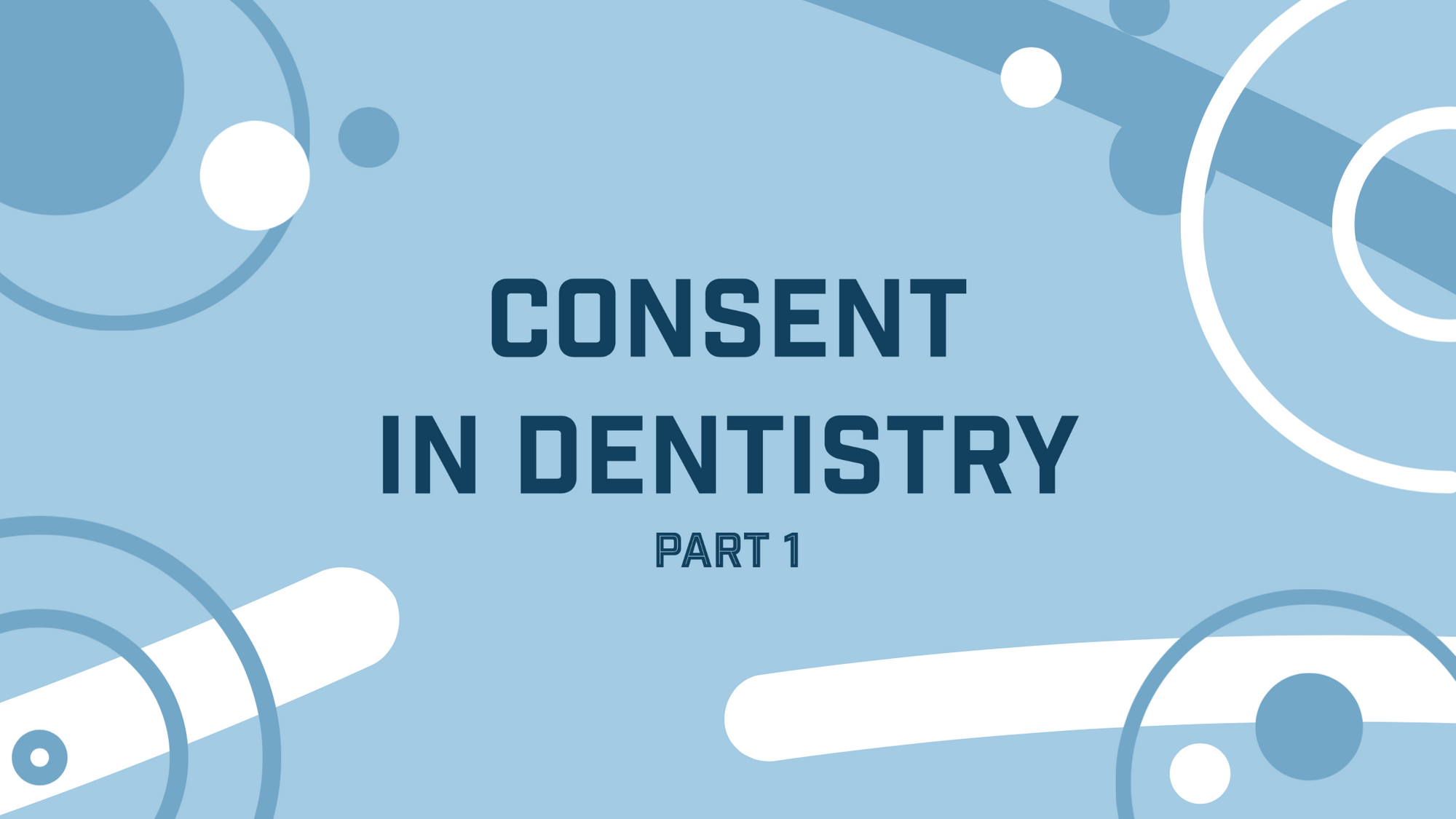Consent in dentistry is a very important issue which is highlighted by the fact that it is the 3rd GDC principle. Consent is the process where a patient is given all the information necessary to enable them to decide what tests, therapies or procedures they will or will not undergo. Obtaining consent is not a static event and is a process which is important both ethically and medico-legally, as it respects the patient’s autonomy and their right to make choices for themselves. It is the practitioner’s responsibility to ensure that the consent obtained is valid.
To obtain valid consent there are 4 main elements which must be covered. These are: adequate information, competence, voluntariness, and a decision by the patient as to whether or not to agree to the procedure.
Information:
The patient needs to be given enough information to make a decision about the treatment, including treatment alternatives (if available) and they must be aware that they can refuse treatment if they wish. The practitioner needs to determine how much information to give the patient and they must communicate this information in a way which is comprehensible and sensitive to each patient. This communication must be jargon free and must be tailored to the patient’s specific individual needs.
Law:
Dentists must ensure that patients are aware of any ‘material risks’ involved in a proposed treatment, and of alternatives. Material risk is where a reasonable person, in the patient’s position, would likely attach significance to the risk or that the clinician should reasonably be aware that the particular patient may attach significance to it. Patients must also be informed of substantial risk of grave adverse consequences. This is different from the Bolam test which is where the medical professionals’ actions would be supported by a reasonable body of professionals.
Decision-making capacity:
The patient must be competent to make a decision and if they are, they are also considered autonomous. Some patients are not competent as no matter how information is explained to them, they lack the capacity to understand the procedure and its implications, thus they cannot give consent. A person is competent if they understand the information conveyed and the decision required, and how that decision will affect them. The patient must be able to reason and weigh the risks and benefits and consequences of their decision.
Voluntariness:
A patient must freely agree to the treatment suggested by the health care professional and there must not be any coercion, deception or manipulation involved in gaining consent as will invalidate consent. This is because coercion usually reduces the options available and skews the process of making a decision, thus reducing the ability of the individual to act with autonomy. Lack of coercion means consent has been given freely, lack of deception would mean the information given is true and lack of manipulation means the patient was not pushed towards making a certain decision.
Decision: Yes or No?
The patient should actively participate in the decision to make a conscious one. A decision to refuse treatment should be as respected as a decision to accept treatment. For consent to be meaningful and valid one has to be free to decide either yes or no and any valid refusal of consent should have the same authority as valid consent. Patients must be free to say no without fear of any repercussions.
If any of these elements of consent are not satisfied, even if the patient signs a consent form, the consent has not been valid.
The law recognises that every person has the right to have his bodily integrity protected against invasion by others. Absence of consent before treatment means that battery has been committed as the patient must understand in broad terms the nature and purpose of the procedure they are agreeing to and what is to be done. Battery is any non-consensual contact, and no injury or harm is necessary. The dentist has a duty of care to inform the patient and if the patient is not informed correctly not only is any consent given invalid, but there has also been negligence even if the procedure was done with upmost skill. This means that practitioners will have to give their patients sufficient detail/explanation about ‘significant risks’ of proposed treatment otherwise they could be accused of negligence due to giving insufficient information.
Words by Golasa Sheikh Akbari (3rd year dental student UoB)
